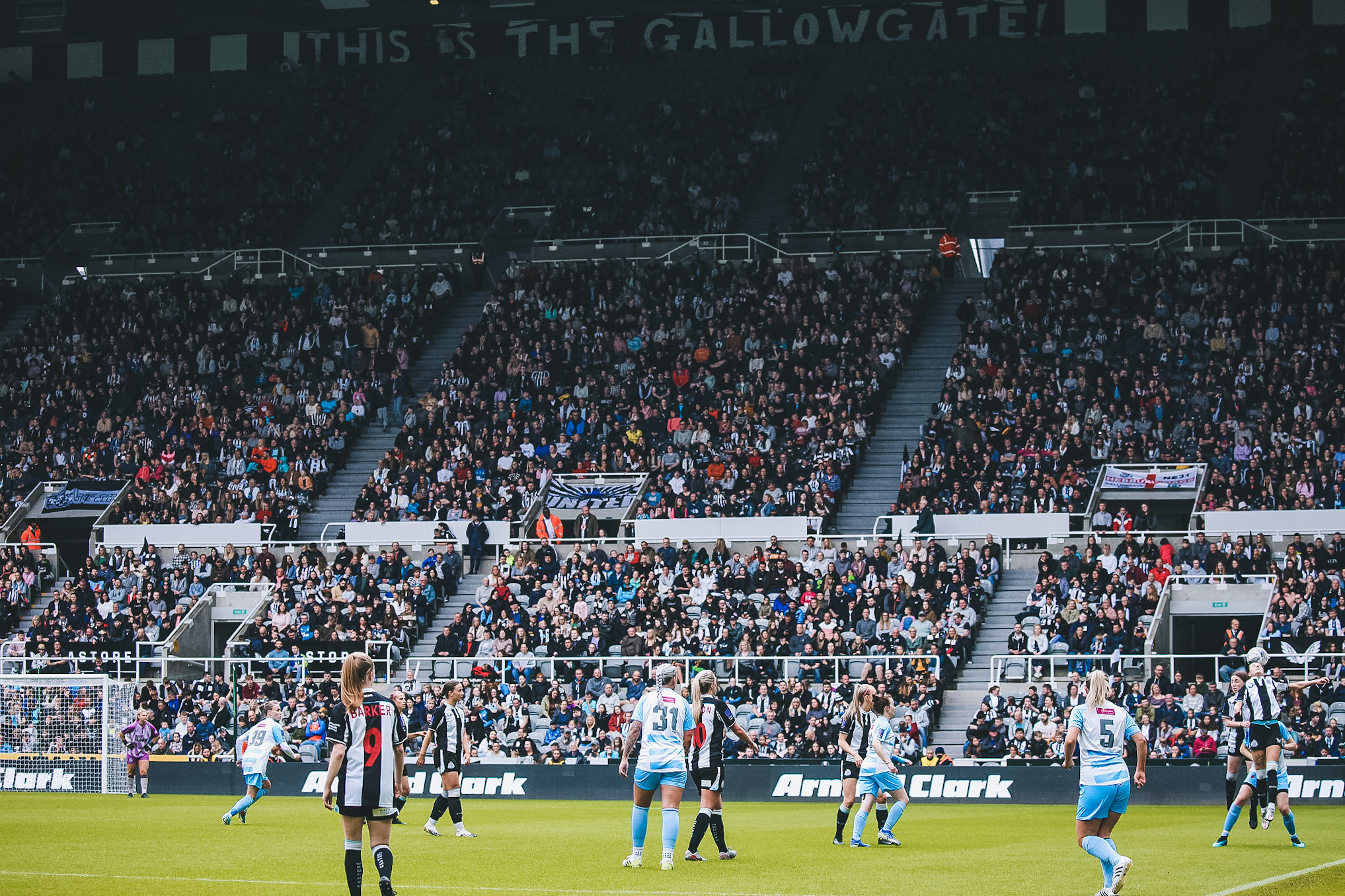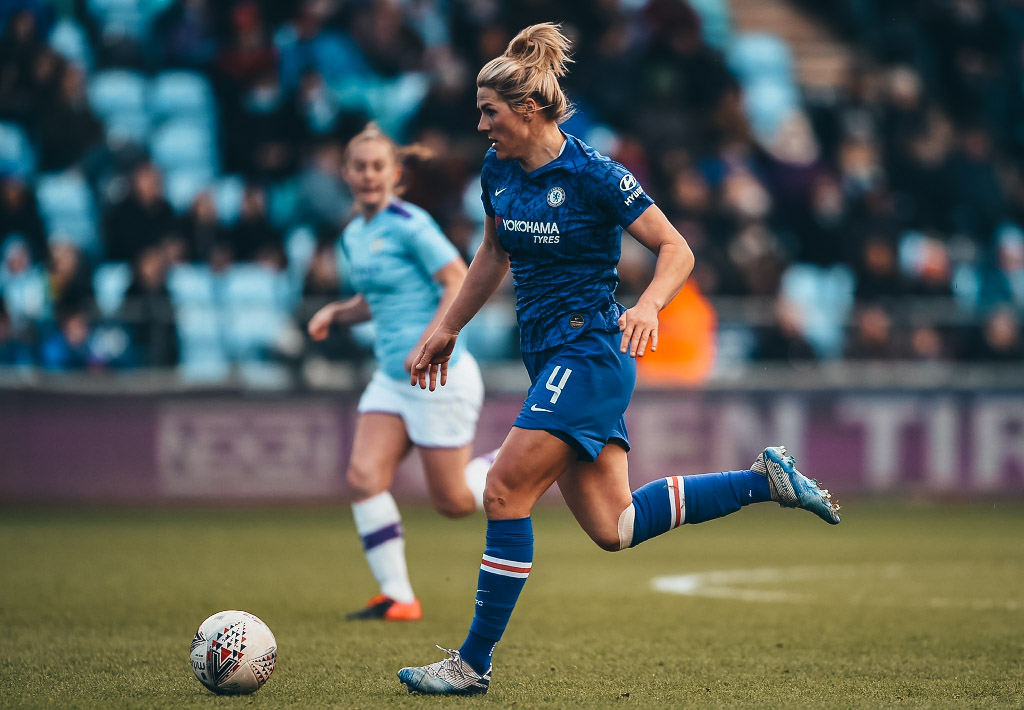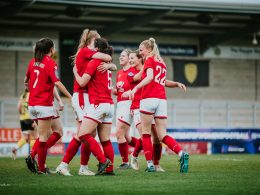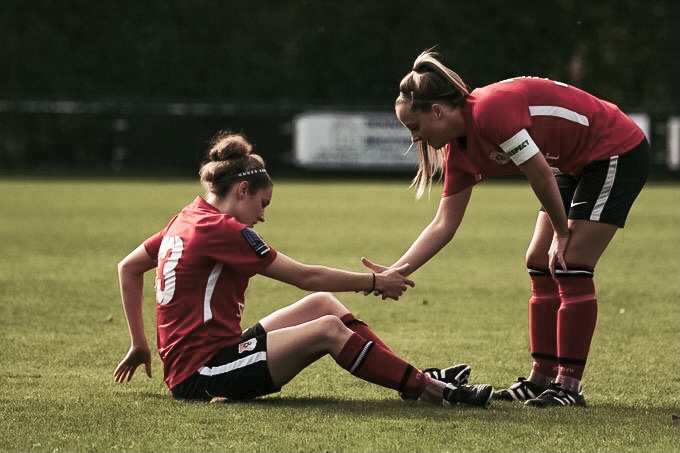On the face of it, this summer is one women’s football fans and players could only have dreamed of a few years ago. A home women’s Euros that England have a real chance of winning, coverage and audience numbers rocketing, and positivity everywhere in how the game is discussed. But there is a dark-side to this success, and as the profile of the game rises, football needs to be ready for the “culture wars” to invade the women’s game and protect against it, too. (CW: this piece contains mention of swearing and misogynistic/homophobic slurs)
The messages were depressingly familiar this week.
“VIEWERS BLAST “AWFUL” CHANNEL 4 ENGLAND COVERAGE” screamed the Daily Mail, before gleefully sharing viewers’ tweets about the broadcast, which was notable in football terms for being one of the rare occasions the coverage was being presented by Jules Breach (let’s not forget, a woman of colour) and had several female pundits including England vice-captain Jordan Nobbs involved. Apparently, this shameless promotion of women to talk about the men’s game had set off outrage.
Those were the polite comments. They got worse…for example comments about “football heading the way of Eurovision” and “transgenders representing England Women”…
Then, there was the large number of men (and they were all men) who decided to take a massive dislike to Jordan Nobbs for the heinous crime of…apparently, being a woman wanting to talk about football. By now anyone who’s watched football involving female pundits will be familiar with the playbook here…I hoped not to open Twitter on Channel 4’s coverage debut and see Jules Breach’s name trending from male football fans shouting at her for daring to talk about men’s football, as has been the case with Alex Scott every Saturday this season, but it happened.
The comments ranged from “who is Jordan Nobbs” to claims she could “barely speak English” (one assumes the men saying this have never been North of about Watford given they appear flummoxed by a Northern accent) to the toe-curling stuff, like:

(the fact Jordan herself is tagged in that tweet and has been in many others from blokes basically deciding to turn up in random mentions and comment on everything from her tan to her voice to her hairdo is utterly depressing, by the way).
Women’s football isn’t, sadly, unused to these sorts of comments. With the much-publicised disparities in funding and exposure historically for the men’s and women’s game, the shameful way that women’s football has been treated by the FA and other national governing bodies historically (doing decades of damage that even with the meteoric growth of the game will probably take at least a generation to fully recover from) and good-old-fashioned sexism and misogynistic attitudes, it’s almost become depressingly normal under every post about women’s football to see the same types of posts, usually from the same demographic of football fan. And it is right that this is being challenged more and more.
But the battleground for women’s football and indeed women in football is still a vicious, bruising one, both on the pitch and in the stands. Every single post from a major media outlet on the women’s game is bound to have hordes of people trying to tell everyone how much they don’t care.
Football groups on Facebook try to pander to what they think are their audiences by only ever featuring women’s footballers as objects (Switzerland and Aston Villa’s Alisha Lehmann, despite being a decorated international, is perhaps the biggest victim of this with the comments around any picture of her in football kit very quickly degenerating into an absolute sewer – my heart sinks every time I see her appear on a Twitter feed. And it’s not just the anonymous trolls on social media – even certain sections of actual paid journalists apparently either can’t see past who female players like Alisha are dating when they appear on TV as footballers in their own right, or you get stuff like this , which appears to be nothing more than an excuse for some pervy bloke in a tabloid office to write things like this in a story which has the slightly flimsy subject of “this is Aston Villa squad player and relative Premier League nonentity Douglas Luiz’s girlfriend”
“23-year-old Lehmann’s Instagram following exceeds an enormous 7.3million users – almost 10 times more than Luiz, who boasts a mere 856k in comparison. And a quick browse of the striker’s account proves exactly why that is the case. The Swiss sensation regular posts scantily clad snaps and pictures of herself posing, like this one sizzling in a skimpy white bikini…The stunner’s other Insta posts include images of her in action for both Villa and the Swiss national team, snaps of her soaking in the sun in Dubai and a video of the striker’s recent Soccer AM appearance.”
Is it any wonder that with women’s football seemingly receiving this sort of attention and comments on a daily basis and female players being viewed in these terms by many mainstream media outlets, over a third (36%) of footballers in the WSL reported anxiety over their looks and being at risk of suffering eating disorders in a survey released this month?”
The toxicity around appearance is rife in the women’s game in a way it simply isn’t in the men’s, and we are already seeing the results as players become bigger stars still and a large part of the media still seems to think that they “have” to write about the game this way to appeal to any football fans.
You then, of course, had this moment in the Sun last WSL season. Chelsea beat West Ham 4-2 in the Continental Cup with Pernille Harder, one of the best women’s players in the world at her position, scoring a hat-trick and Scottish and GB international Erin Cuthbert scoring the other. This is how a national newspaper chose to do their match report…
The first line of that report, by the way, is “A string of goalscorer’s names in a football match report was likened to the sound of toffs romping in bed” – a line that you’d think would make any sports journalism graduate question what on earth they were being asked to write, never mind a “professional journalist”.
It didn’t go down well with Erin Cuthbert or indeed anyone in women’s football, who ripped it to shreds, leading the same paper to desperately pull out one of its own female reporters to defend this magnum opus by journalist Steve Moyes, claiming that reducing women’s football to “lol those player names sound like posh people having sex” as the actual form of a piece was somehow a joke and anyone, including a player involved, reacting to it, was “woke”. (Clemmie Moodie is a showbiz journo more used to producing articles about which TOWIE celeb slept with which Love Island reject, by the way, but once played park football in the South West London leagues, in case you’re wondering what her women’s football background is).
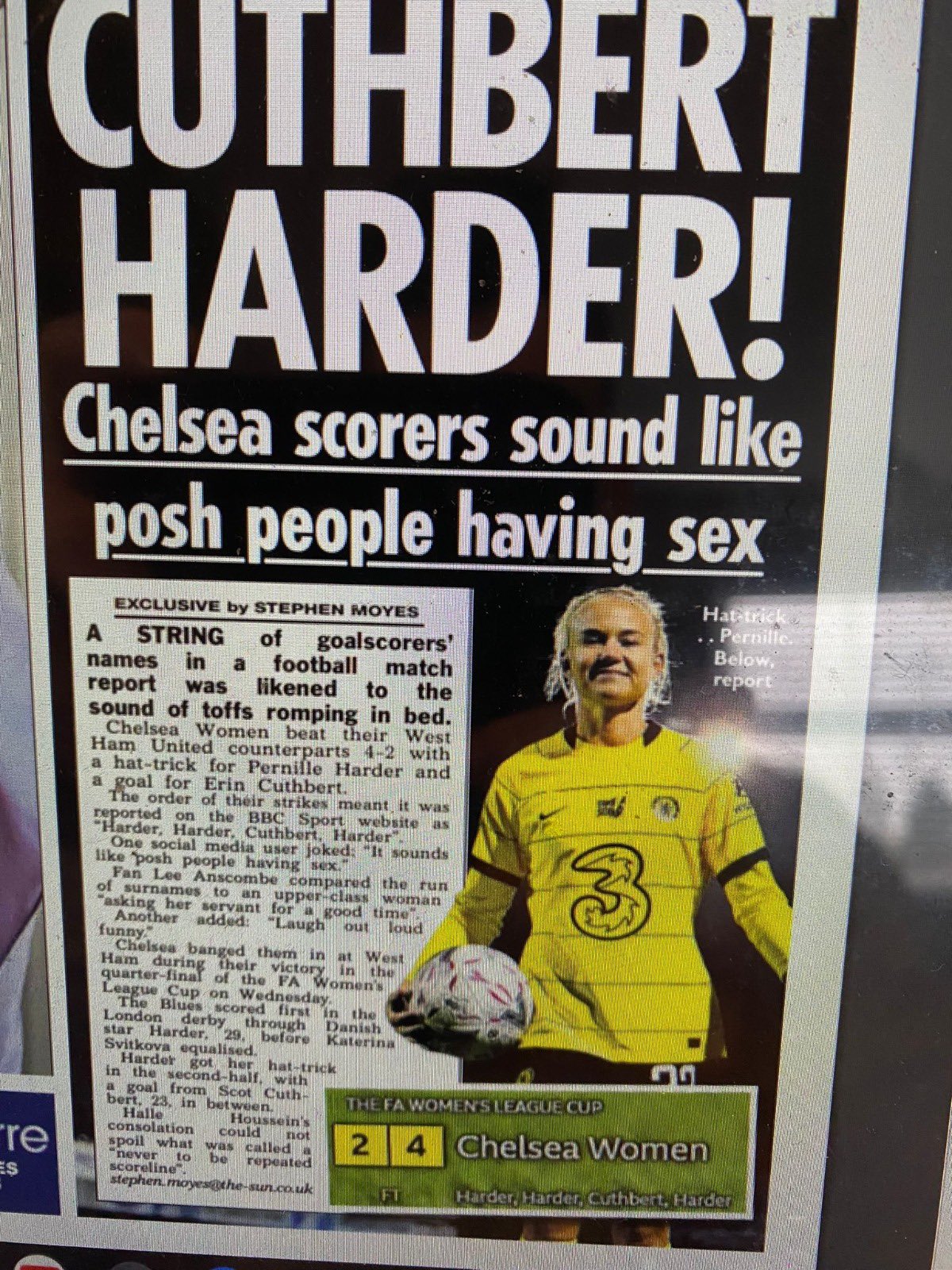
These are examples from just 2022, but the sexual undertones and desperate need of some to reduce women’s football to sex and nothing else extend to any man who is either involved in or tries to watch women’s football…I’ve had people ask me “well, which player at your team do you fancy (and cruder terms)”, jokes from male friends about “obtaining the numbers” of players for them, and comments about how “if they have any fit players, tell me and I’ll come and watch!”
Now some will say that so far, this is just what women’s football has had to deal with since time immemorial and the easiest way to deal with such things are to ignore them, but they are missing a key point here. As women’s football’s rise has become more and more meteoric, the misogyny and bigotry has got louder, more noticeable and more violent in a way that has mirrored discourse in society and, worryingly, can be tracked in parallel with similar trends in areas like anti-LGBT rhetoric and the discussion around things like “incel culture”.
Unwillingly, the rise of women’s football and its increased visibility has become a key weapon in the armoury of those opposed to all things progressive and “woke”, and used as further evidence in certain extremist areas of the “manosphere” (the umbrella term for an area of the internet promoting misogyny and anti-feminist beliefs under the guise of “men’s issues” and the rhetoric against women’s football has gone from the merely annoying to the genuinely concerning as “incels” (an extreme, hate-filled predominantly male subculture of the Internet that is defined as “a member of an online community of young men who consider themselves unable to attract women sexually, typically associated with views that are hostile towards women and men who are sexually active.”) have latched onto the growth of the game and a lack of support for it from some men as “validation” for their extremist views.
As an example of how, consider the case of the Manchester City fan account MCFCWorld, a football-focused account with 15k followers that posted the following a week ago:
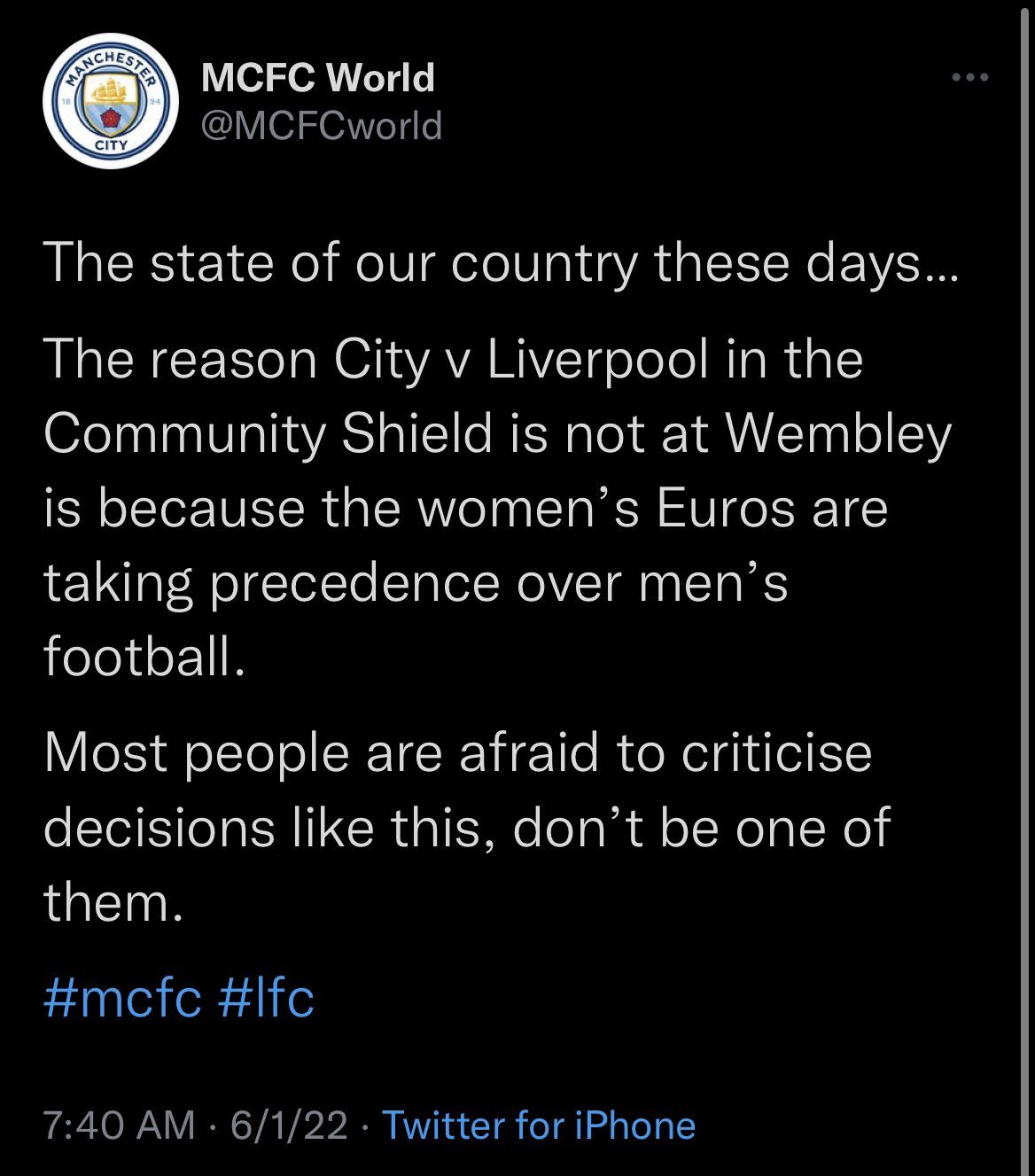
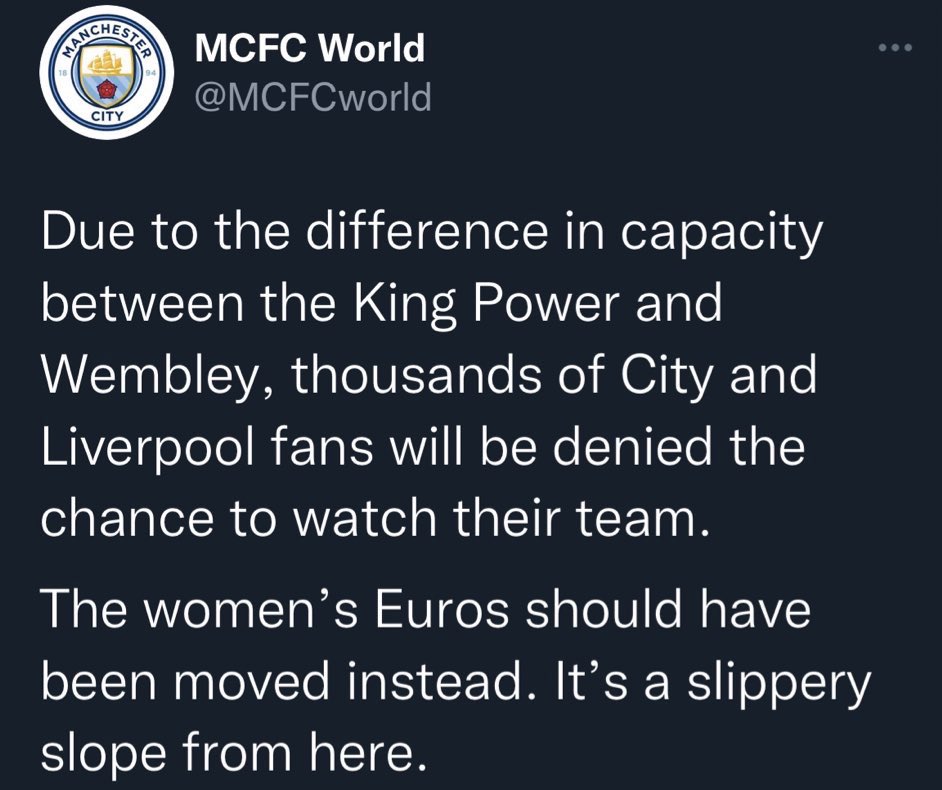
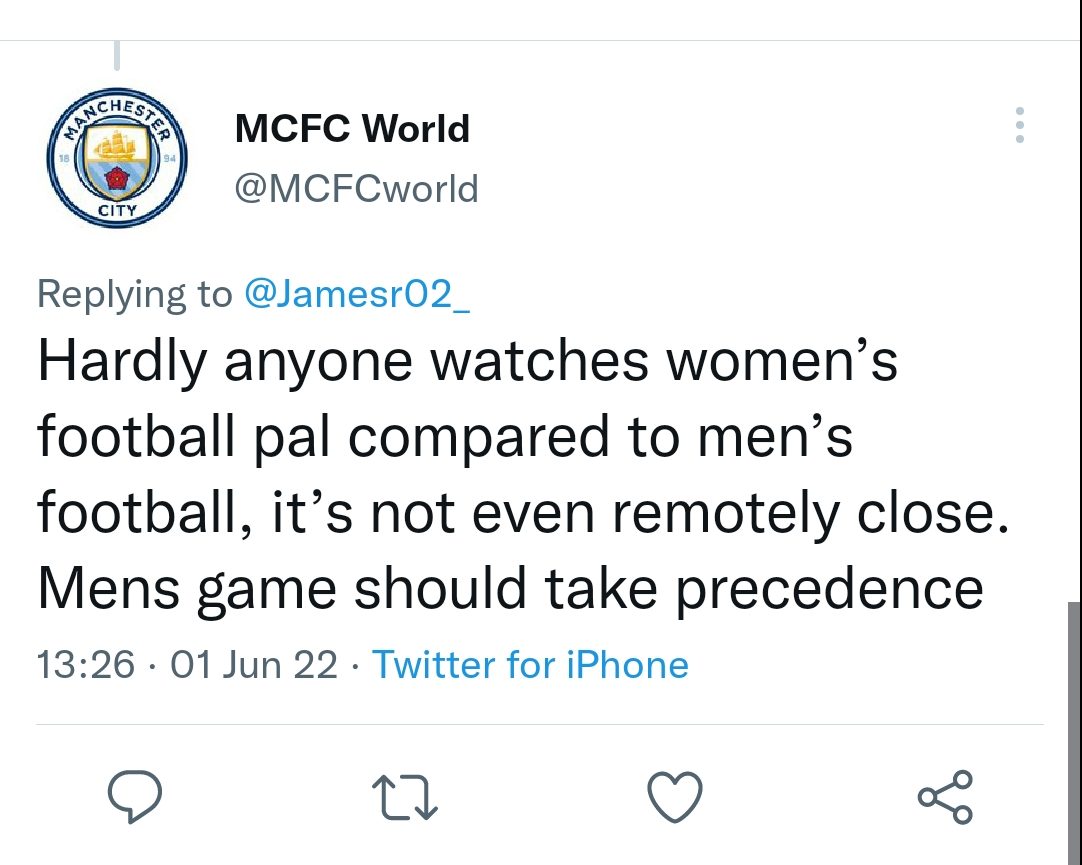
As you might expect, with women’s football audiences having risen nearly 300% for British TV this season alone, this opinion was ripped to shreds, so our friend decided to create a poll over whether or not people would rather watch the men’s Community Shield or the Women’s Euros Final to try and “prove” his point. And this is where things start to get disturbing. You see – the poll was OVERWHELMINGLY in favour of the women’s match. And whilst this caused mostly joy amongst the women’s football fans of Twitter, it also brought out some VERY disturbing comments indeed that crossed the line from merely “not liking women’s football” into outright hatred. In short, it brought out the incels to “defend masculinity” and show their hatred not just of women’s football, but of women as a whole. As seen here in these examples.
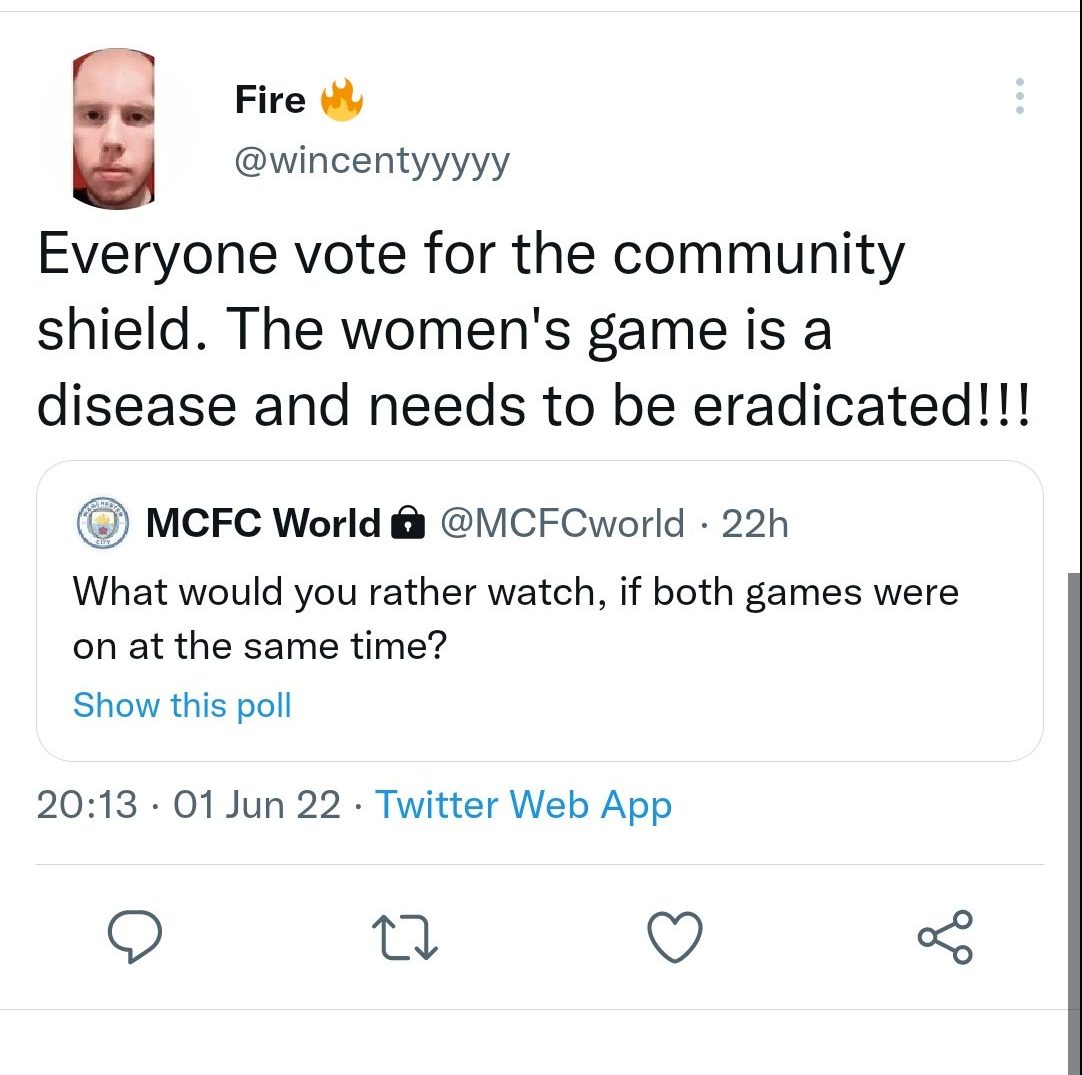
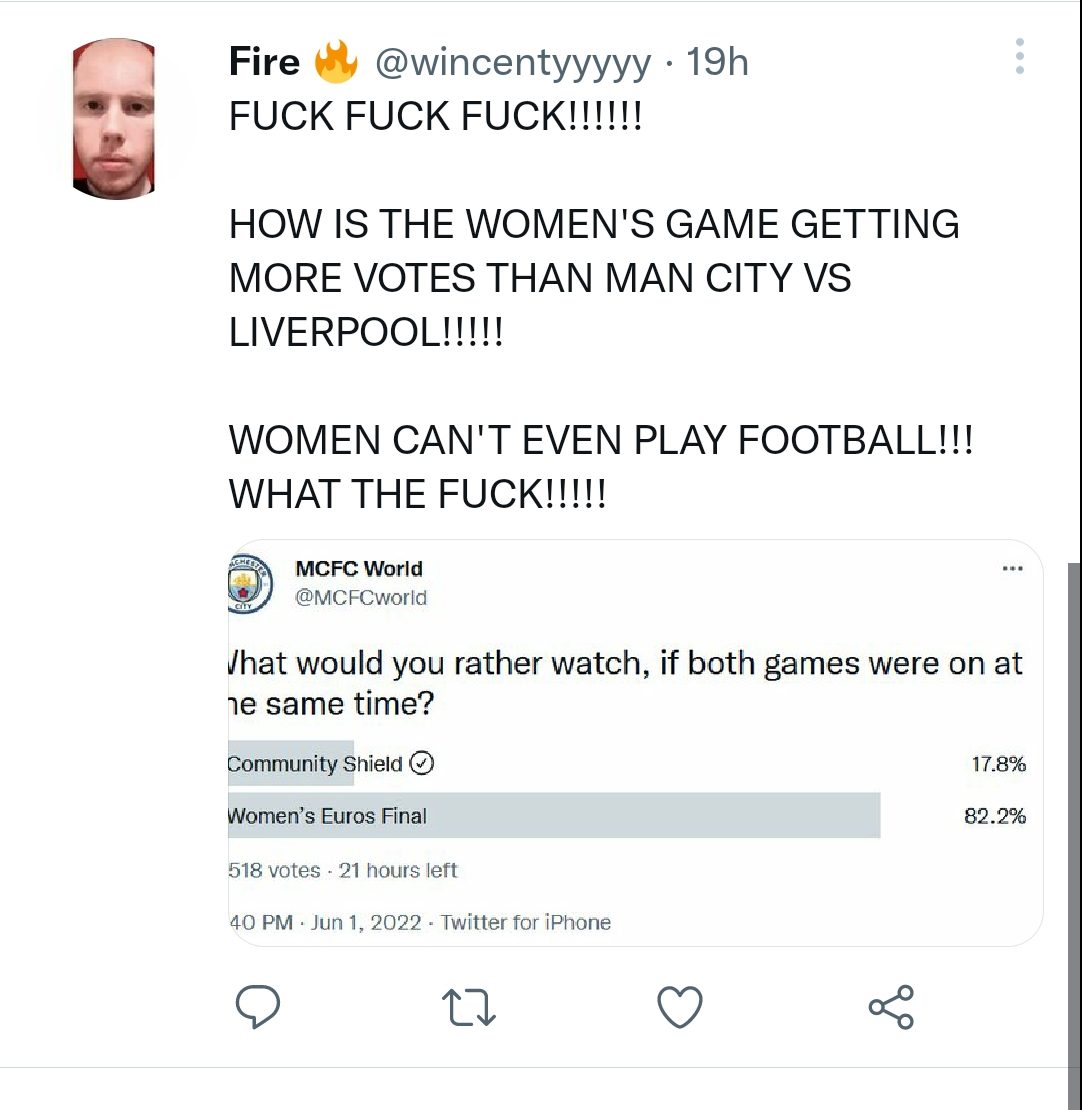
These tweets, and some like them, looked a little different to me to the usual, and so out of curiosity I went and looked at this person’s profile and a few others like it, and the timeline was a cesspit of vile misogynistic tweets, abuse of female celebrities, and racism culminating in one that had a hooded figure holding a gun along with “I’m tired of being ignored by women.” Needless to say I’ve never hit the report button so fast in my life. As of now the account is still up, still posting its tweets and still ripping into women at every opportunity. And he (I’m assuming he was a he) was not the only one.
Follow to Tuesday, and the announcement that Belgium and Germany men’s teams would wear copies of their women’s kits to show support for their female teams ahead of the Women’s Euros. The responses had a disturbing number of comments about them playing “in drag” and “the women’s team are all men anyway”. For all the talk about how women’s football is growing and breaking stereotypes and taboos, it appears that the chorus of hate continues and indeed is getting more extreme than ever.
So…what point am I trying to make here, as a male fan of women’s football? What is the purpose of spending an article highlighting this when all the conventional wisdom says it should be ignored?
It’s to make an important point about the narrative around women’s football and more importantly, the challenges and dangers it faces in how its perceived and how that is changing. As women’s football grows, the accepted narrative is to highlight the positives – massive crowds at the Nou Camp, exponentially increasing viewing figures, and female footballers being placed front and centre in media and advertising campaigns. And all that is very true and wonderful to see.
But with this exponential growth, it appears, has come a dark side – women’s football and women’s footballers being dragged even further into a wider issue in society – that of division and the so-called “culture wars”. We’ve seen studies, for example, that say that even despite this massive growth and ahead of a home women’s Euros, only 24% of British men believe that women’s sports “deserves” an equal amount of coverage. We’ve seen the increasing issues for women’s footballers around body image and declining mental health, some of which has been explicitly linked to the increased visibility of the game and the worries of these players that when they step into the public eye, they become a target.
And most sickeningly, we’ve seen a trend of more and more violent reaction from those with misogynistic viewpoints against women intruding on a traditionally male space – a reaction best summed up in this superb but hard-to-watch documentary by Erin Hughes called “The Game” on how women are treated in football fandom – a video well worth twenty minutes or so of your time.
Women have always faced resistance from some football, but as they make more and more progress both on and off the field, that resistance is becoming more and more extreme in the way it manifests itself and is being used to attract and unify some very unsavoury elements to the “cause”. In short, like it or not, women’s football has become a cultural battleground for some in ways that stretch far beyond mere football, but into society itself.
And with the Women’s Euros less than a month away, in amongst all of the joy and celebration of what is hopefully going to be one of the biggest festivals of women’s football ever seen, the game needs to be aware of this danger and ready to tackle it, whether that be by more public figures in the men’s game standing up and providing the level of support given currently by figures like Ian Wright, or social media companies and broadcasters taking stronger, harsher action to defend against attacks or challenges from these elements.
Over the summer and the coming domestic season, there will no doubt be more vitriol hurled from dark corners at female players and broadcasters, and teams and organisations need to be ready for this and put processes in places to defend and shield women, whether that be stronger mental health support within women’s teams or more unified stances and support from the men’s game to make it clear to these people that if they don’t support women’s right to play and watch football, football simply doesn’t want them.
We as fans and media also have a responsibility to report any concerning messages we see, or challenge negativity while promoting and uplifting the great work of female players and broadcasters both in this event and beyond, until eventually the hatred becomes an opinion that sees its proponents shunned by all of football, including their fellow male supporters.
Women’s football has made HUGE gains over the past few years and it will continue to do so, but in today’s divided society it also risks being used as a weapon in a fight it never wanted to be part of, by people it never wants near the game – and every single one of us owes it to both ourselves and our fellow lovers of women’s football to be vigilant.
As the hashtag says, it’s “her game too”. And the only way to ensure that is the case is to be aware of the ways sections of society will continue to try and make sure it isn’t and how they are fighting more and more violently even as their days are numbered.
Because after all, football is for everyone, and nobody in women’s football, player or fan, should be made to feel unwelcome or unsafe by people who claim to “love” the game at a time when the game is finally beginning to get the respect and growth it deserves. #protectwomensfootball





